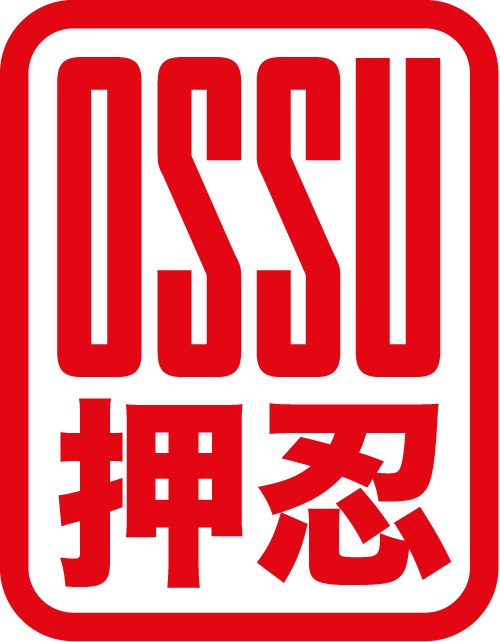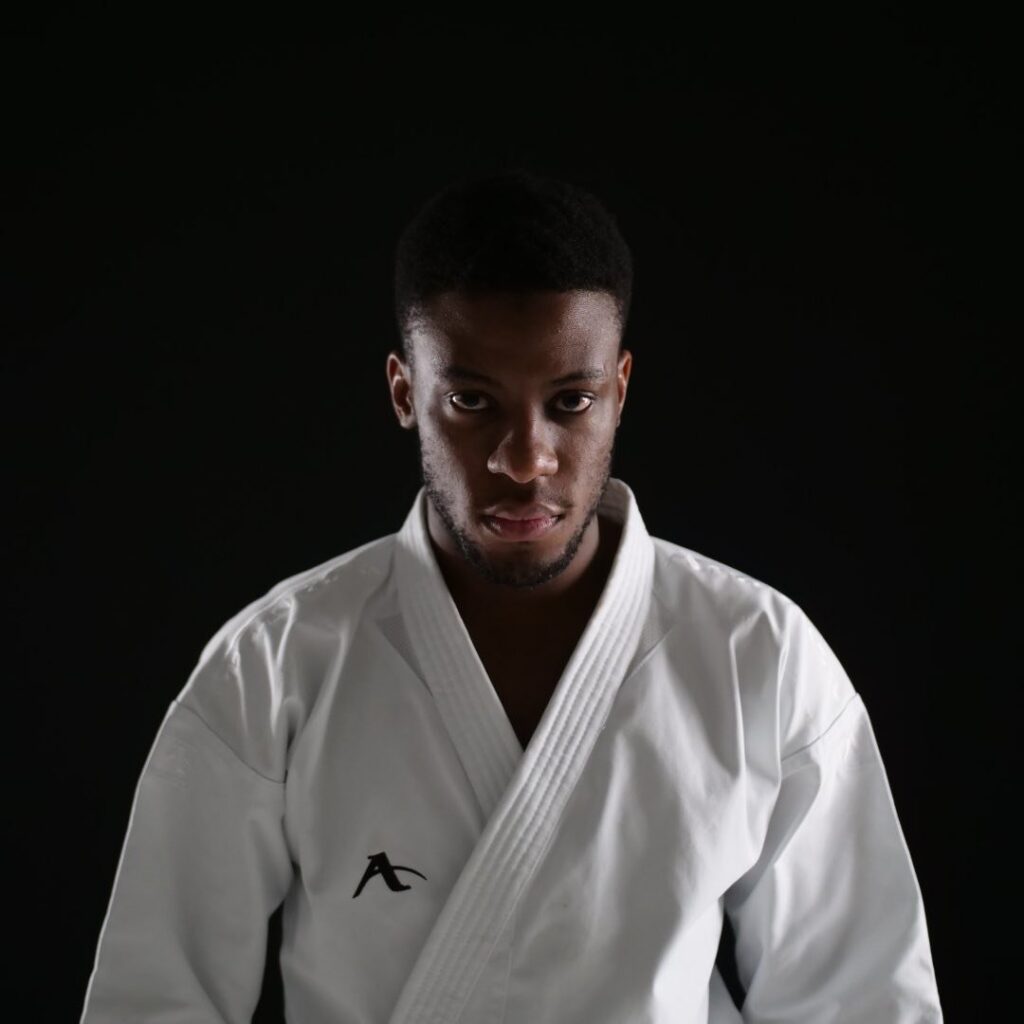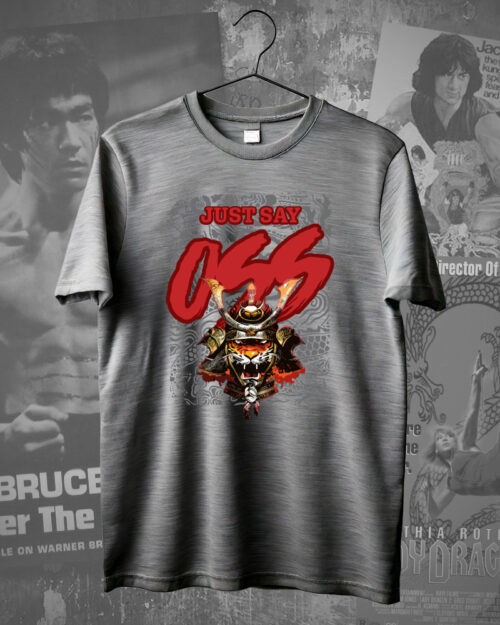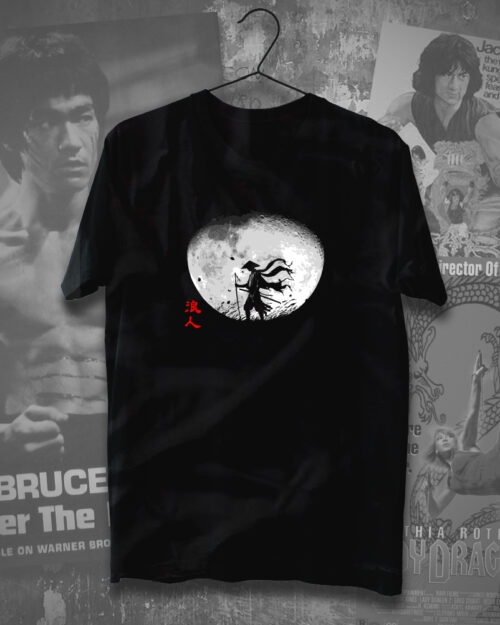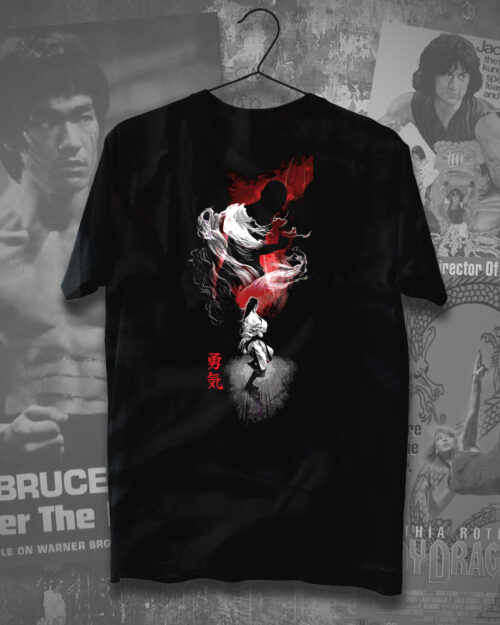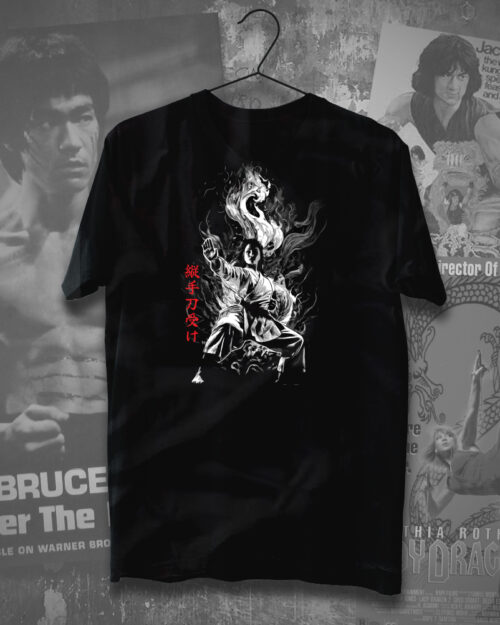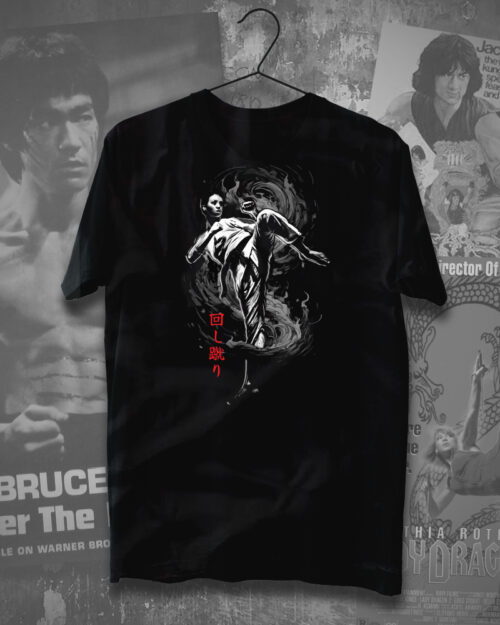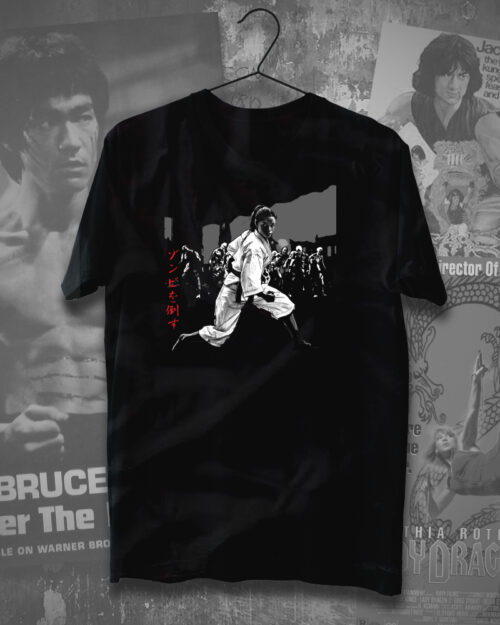Can you share your early experiences with karate and how you got started in the martial art?
I remember trying karate in my nursery school days with a great man named Les Stevens! There was one day where everyone who was interested got the opportunity to try a karate class, and I loved it! Unfortunately, this was close to the end of my tenure at the nursery school, and I was soon to begin my journey in “big school.” Big school. Imagine?
Anyway, big school came with big problems (I say this but am aware of the complications and trauma associated with the following events for many people and do not take it lightly) of bullying! Within a very short period, my parents made efforts to locate Sensei Les Stevens, and I was back to doing what I truly loved so much. Long story short, the bullying came to an end. My karate journey would be nothing without Sensei Les Stevens! It wouldn’t even exist.
My family does have a history of karate, but it’s impossible for me to not share the blessing of being able to meet and be taught by such a great man!
What is the underlying philosophy of karate that resonates with you the most? How does the discipline of karate translate into valuable life lessons off the mat?
This is a tough one, as there are many examples I can share insights into. But forcing myself to choose one, I would say the ideology of striving for perfection while being fully cognizant that such a target isn’t attainable. Ultimately, this ensures that I do not become complacent. There is always room to improve and to learn. The learning can come from absolutely anyone and anywhere! Why this is so important to me, is that this ideology can be applied across many areas in life such as jobs, relationships, health, etc. The more deliberate you are in your investment in these areas, the more likely they are to be rewarding.
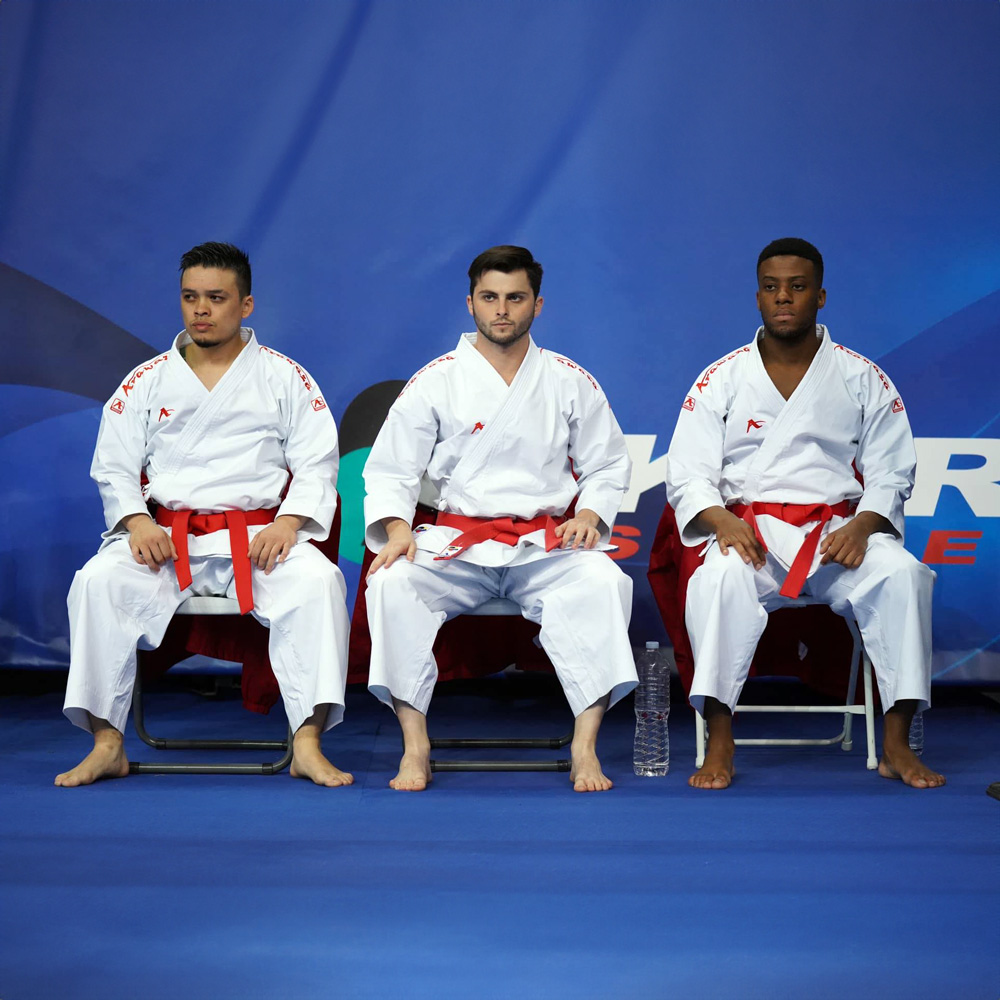
What message would you like to convey to the youth who are interested in pursuing martial arts? How does karate contribute to building qualities like confidence, self-discipline, and respect among young practitioners?
I believe the confidence is built in the great efforts young practitioners exhibit in learning their Kihon, Kata, and Kumite. Until one has consistently been in a position of teaching young practitioners these elements, do they truly understand the complexity that is associated with transferring such knowledge and capabilities? Like all things, people grasp concepts differently. Some are faster than others. In addition to this, people display competence differently. Some are better than others. But what is great about karate is that no matter how one grasps concepts or displays competence, everyone is evaluated on the same criteria and treated equally. If we look at a formal process such as grading, young practitioners are aware of what is required of them to obtain a “pass.” With months of training, you can appreciate the confidence that grows in these young practitioners as they understand these concepts and improve in their competence, thus executing the criteria successfully. Sometimes, there is nothing better than seeing the joy one has in being able to do the first 9 moves of Heian Shodan by themselves!
Self-discipline comes from the expectation of grasping concepts and improving in competence through a commitment to regular training and dedication in exhibiting one’s efforts to the best of their ability, consistently. I believe this is reinforced as one progresses in their martial arts journey through various grades and ranks, requiring one to grasp even more complex concepts and master even more complex competencies. Young karateka are aware of the responsibility of adhering to such. Otherwise, they require more time to be granted another opportunity to progress in their journey of attaining additional ranks and grades. I have an extremely biased view, but I am unsure how many other arts require such discipline from a young age. Of course, this vital lesson is so important to many aspects of life.
Respect is not only taught within the maxims and correct behaviour in the dojo (of course it’s taught by parents and guardians too), but I feel an element that we can sometimes overlook is competition. It takes great courage for a young white belt practitioner of the age of 6 or 7, to stand in the massive Ellis Park Indoor Arena in front of hundreds of people they do not even know and shout “Heian Shodan,” followed by the execution of the techniques. These young 6 or 7-year-olds then engage in their respective actions for the hundreds of people to see their evaluation, in real-time. The fact that at such an age, many display such bravery, regardless of the outcome, deserves a massive amount of respect. This is one example but certainly, one where I believe they receive respect from fellow practitioners as all stakeholders are aware of the challenges in preparation and the associated nerves on the day that are elicited in engaging in competition. Martial arts practitioners are certainly built differently!
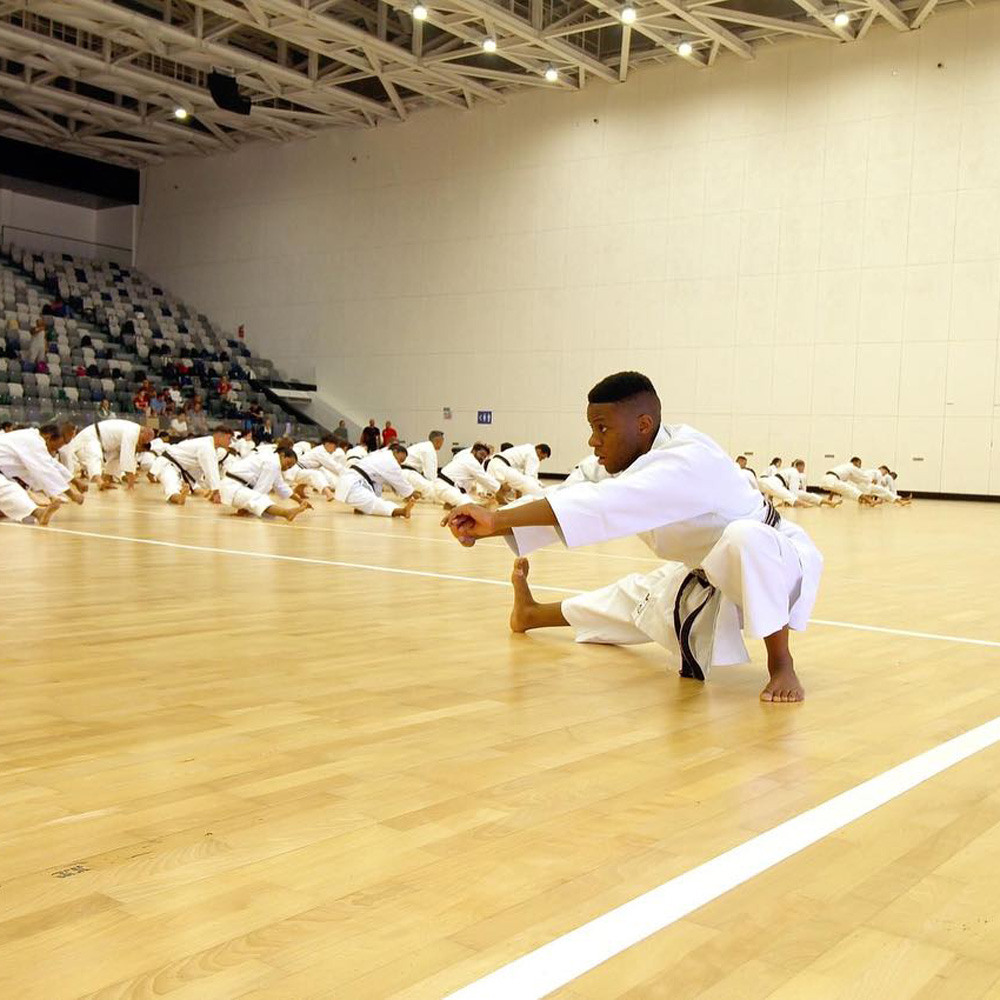
Can you share an example of a personal experience where karate principles positively impacted your decision-making or problem-solving skills?
I’ll share a practical one which I truly believe can be applied in multiple areas of life depending on how it is understood and appreciated. This response is multifaceted and might seem confusing. But again, it depends on how it is understood and appreciated.
It’s a combination of the lessons I have learned in my upbringing provided by my parents, with lessons I have learned from my tenure as a karateka at great dojos such as Honbu Dojo and Bedfordview Dojo, that have led to my understanding of what it means to be a karateka and thus applying karate principles positively in decision-making or problem-solving skills.
In my personal experience, I wanted to pursue a new opportunity. A new path in my journey. At that point in time, it was the unknown, and thus I was unaware of how great the opportunity could be. I knew it would be a difficult challenge, but I believed that exposing myself to such an environment, could potentially enhance my competence, understanding, appreciation, and general journey in that particular aspect. Based on that, what did I have to lose? If it met my expectations, great. If it didn’t, great. Just in my efforts, I would have learned something. Anyway, my expression of my desire to begin this journey was not well-received and unfortunately was followed with persistent negativity and attacks (such as being told my teammate and I would never be successful in our efforts) over numerous years in attempts to end my interest and pursuit of this opportunity.
Character – Jinkaku kansei ni tsutomuru koto
Being true to myself by considerably evaluating all options, even the extent of possible harm such could cause to others (none whatsoever), I (and my teammate) began the journey and disclosed this, respectfully. This was not a “popular” decision but sometimes, making an unpopular decision can be the right thing to do. If doing the right thing meant I had to stand alone, so be it. Massive lessons were learned in that process!
Sincerity – Makoto no michi o mamoru koto
Being sincere in doing good whether by action or how you treat others is a great virtue to live by. Of course, one should do this without the expectation of gaining something in return. By standing alone, I quickly realized the genuine support, care, generosity, and blessings that came from familiar as well as unfamiliar spaces. All of this was provided by others without the expectation of gaining anything in return. I truly was never standing alone. Life is all about perspective. All I had to do was look beside me and not focus so much on the apparent hurdle that was in front of me. Surround yourself with good and sincere people, you’ll be blown away by the blessings that follow. However, you, yourself, need to be good and sincere too! This was one of my favourite lessons! I was true to my journey and didn’t deviate from it despite what I thought was a hurdle that could derail me. With the great people around me (we all achieve together), I realized how insignificant that perceived hurdle in front of me was.
Effort – Doryoku no seishin o yashinau koto
If you are going to do something, do it to the best of your ability. Yes, this is easier said than done but invest the required energy that is needed to achieve a particular outcome. When striving for a goal, in most cases you’ll encounter various difficulties along the way. They will certainly make you second-guess yourself. When that occurs, you’ll need to “dig deeper” if you truly desire and want the targeted outcome. I believe the greatest pleasures come after the greatest difficulties. Ride the wave. Weather the storm. It’s worth it.
Back to the previous example, I remained a sponge to continuously learn from others in order to achieve my goals. With that, I was truly blessed to achieve goals that I never thought would be possible and experience opportunities that I couldn’t do justice in explaining! All of this happened because of the time people kindly invested in me. I value their patience and investment. So, with that, the very least I could do, was give it my all.
Etiquette – Reigi o omonzuru koto
Without getting technical on social matters, each person is faced with challenges and experiences that ultimately shape who they are, how they present themselves, and how they show up in this world we live in. Based on this, it’s imperative to understand and acknowledge that a person is a person despite the differences that exist between us. We may not understand or be in favour of those differences, but no one possesses the power to dictate whose differences or preferences are more favourable than others. Back to the example, this should have been applicable too. Differences are a part of life. Making efforts to accept and understand or at least respect an alternative perspective is key to successfully navigating ourselves in social spaces allowing us to build and maintain relationships.
Self-Control – Keikki no yuu o imashimuru koto
One of the most difficult skills which perhaps takes a lifetime to master! That is with consideration if mastery for such a skill is even possible. At times, it can take immense strength to take a step back, breathe, reflect, then answer and/or act accordingly. In some instances, actions and/or answers are necessary. In others, they aren’t. Probably in most cases, it’s the latter over the former. Subjective, I guess.
Ending with the example. Persistent progression in the journey were the only responses that were needed. Everything else was just noise. Objective, I guess.
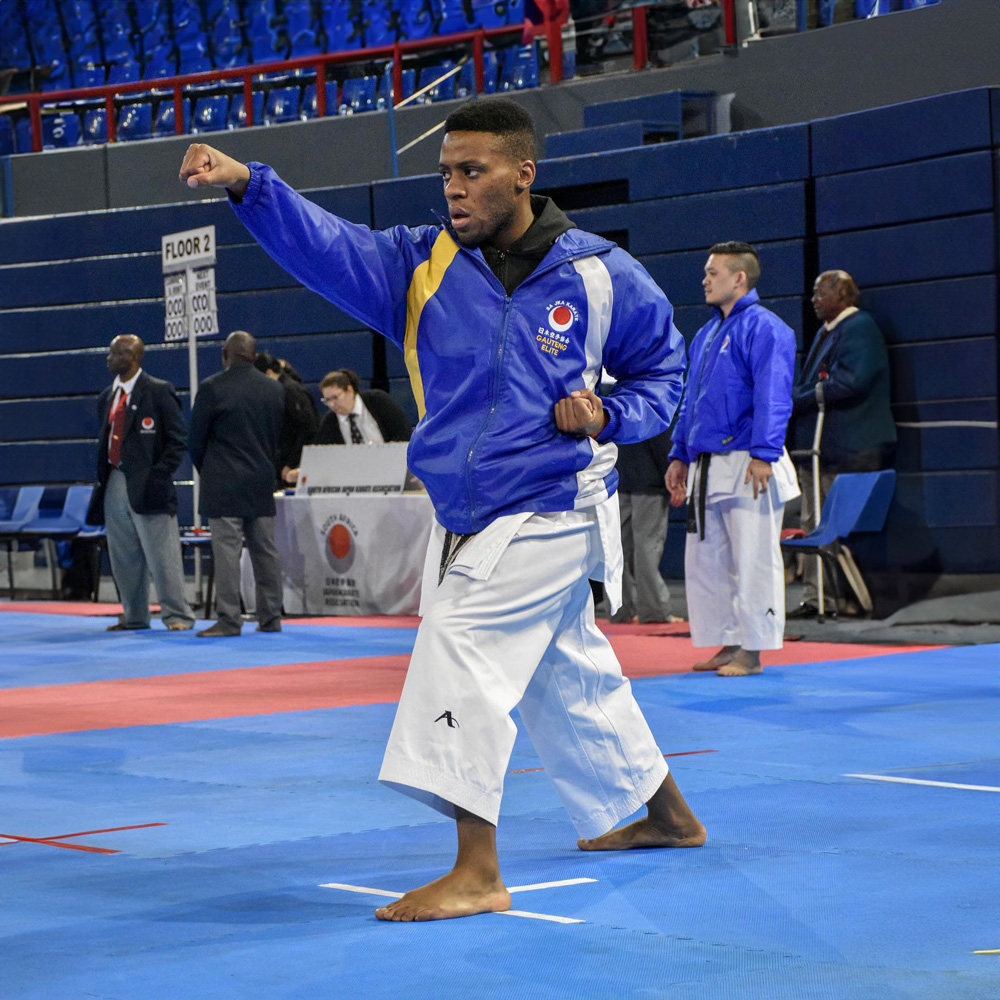
How do you balance your desire for success in competition with the need to enjoy the journey itself?
The journey always comes first and is the most important aspect! Success in competition (whatever that personal evaluation may be) are the extras or the “sprinkles on top of the cake.” What is beautiful about the journey is the learning you obtain about yourself. Achieving that evaluation of success may require drastic changes in your preparation. Whether you attain whatever you determine success to be or not, the learning that you obtain about yourself is far more valuable! Perhaps you weren’t aware of your dedication lived through the sacrifices made in efforts to try and achieve that goal. Perhaps you didn’t know how you could surpass your mental limitations. It could be anything. But, these learnings will always be far more valuable than success in a competition. This is my personal belief and helps me balance my desire for success in competitions with the need to enjoy the journey itself.
Can you describe your typical training regimen leading up to important international competitions?
Long answer incoming! It’s a combination of balancing training in the dojo, at home, and at the gym. It’s tough and requires a lot of investment. A crazy amount! It consumes my life at that point in time. Hours spent at training increase drastically! Together with the training, comes eating well and trying to get enough rest in between. For me, these aspects complement each other over the weeks leading to a tournament. Closer to the time, a small secret which is probably going to get me in a little trouble now, haha, is that anything I perceive to be draining or causes unnecessary stress (I’ll leave it at that), I cut it out around ten days before the tournament! I will get back to it after. Maybe. Maybe not, haha.
For the more technical aspects, of course, it is a team effort where guidance comes from the instructors at the dojo and fellow karateka. This is for general preparation across both kata and kumite events. But considering my personal contribution in addition to this, there is quite a bit that I focus on. It starts with video review, and this can suck as I really need to ensure that I remain objective. So, whether I am reviewing my performance in a tournament (not only positive ones, it is painful but the learning ones too), or my training, I always try my best to critique.
From here, I realize what needs more work. Everything ALWAYS needs more work. Always. I take note of these and then I break it down further. What techniques need more focus? Sometimes it might be a particular side of the body. Which katas or sections of katas need more focus and refinement? Do I perhaps need to increase my fitness levels to maintain concentration in the latter stages of a kumite bout? Am I using enough and/or effective techniques in kumite bouts? Then, I break this down further. What exercises do I need to do in the gym? Strength? Mobility? Plyometrics? Cardio? All of it? Am I consciously trying more attacking/defensive techniques? Are they effective? Then, I build this into my preparation leading to the tournament.
Yes, this is the ideal. Life happens and there are multiple responsibilities, so I do not keep to this “strict” regimen without some alterations and compromises here and there. Naturally, the beauty that lies in the nature of tournaments is that anything can happen on the day. Sometimes it works in your favor, sometimes it does not. That is life. But, even with this in mind, I strongly believe that the outcome of a tournament, or to a significant degree, is determined in your preparation before the tournament even commences. I focus on what I can control. From then on, I just let life happen.
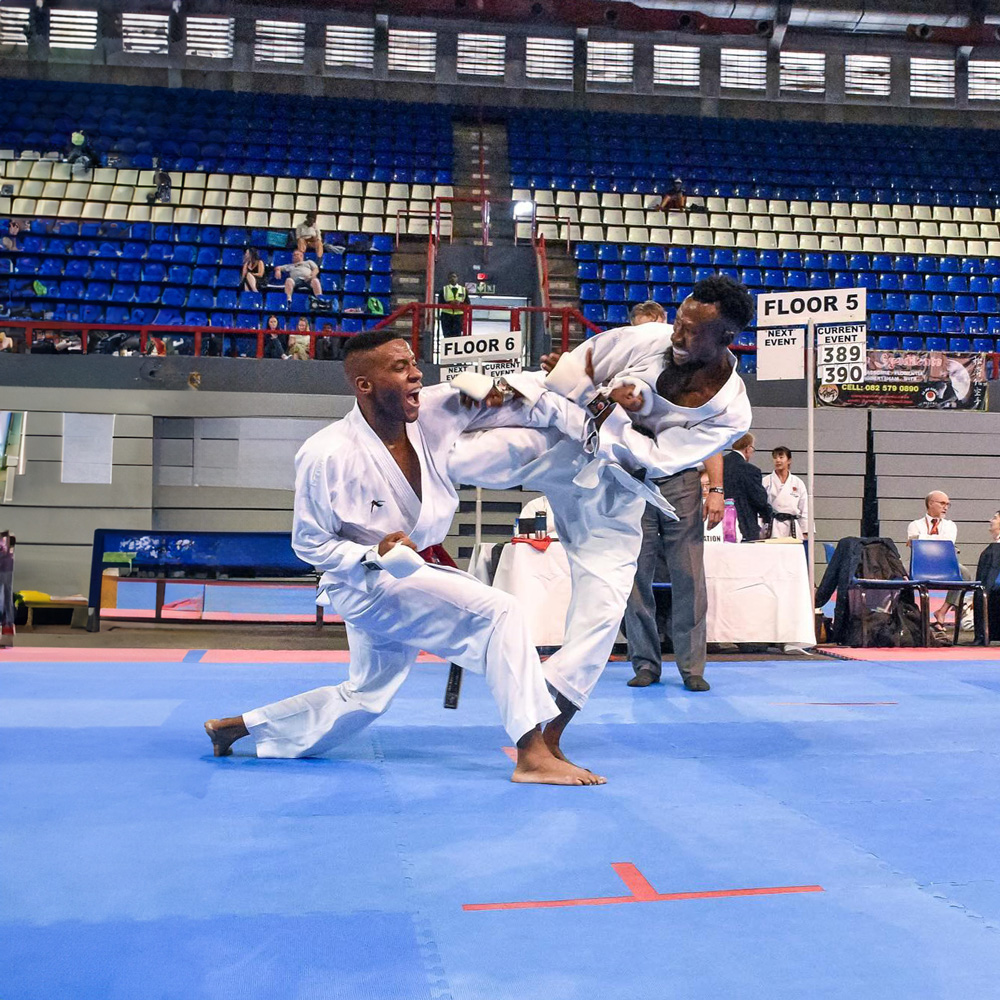
How do you adapt your training routine to prevent burnout and ensure long-term progress?
I do this by listening to my body and looking after it to the best of my ability. How I do this is by managing injuries quite well and consulting where necessary. Aches and pains are normal, no doubt. But if something is persistent, I check it out and get it sorted. We have one body; we need to ensure we look after it to the best of our abilities.
I also engage in smart training which means not doing anything that is “over-the-top” thus increasing the probability of causing significant injury. In between training, I ensure I eat well and also include breaks! The body needs its time to recharge. If you are not going to take it, it will force it. It’s a battle that you’ll lose every time! I made that mistake once, haha. Not fun!
Lastly, and one that I am grateful for the increase in attention it’s currently receiving worldwide is mental health. Life’s stressors and pressures can become quite taxing thus negatively impacting our mental health and thus potentially our general well-being. I engage in daily behaviours to “check” where I am at and manage my mental health to the best of my ability in THE SAME manner that I do for my physical body. Check-in on your friends and family. Always. Mental health is so important! Take whatever steps that are needed to ensure you are okay. That in itself takes strength and courage.
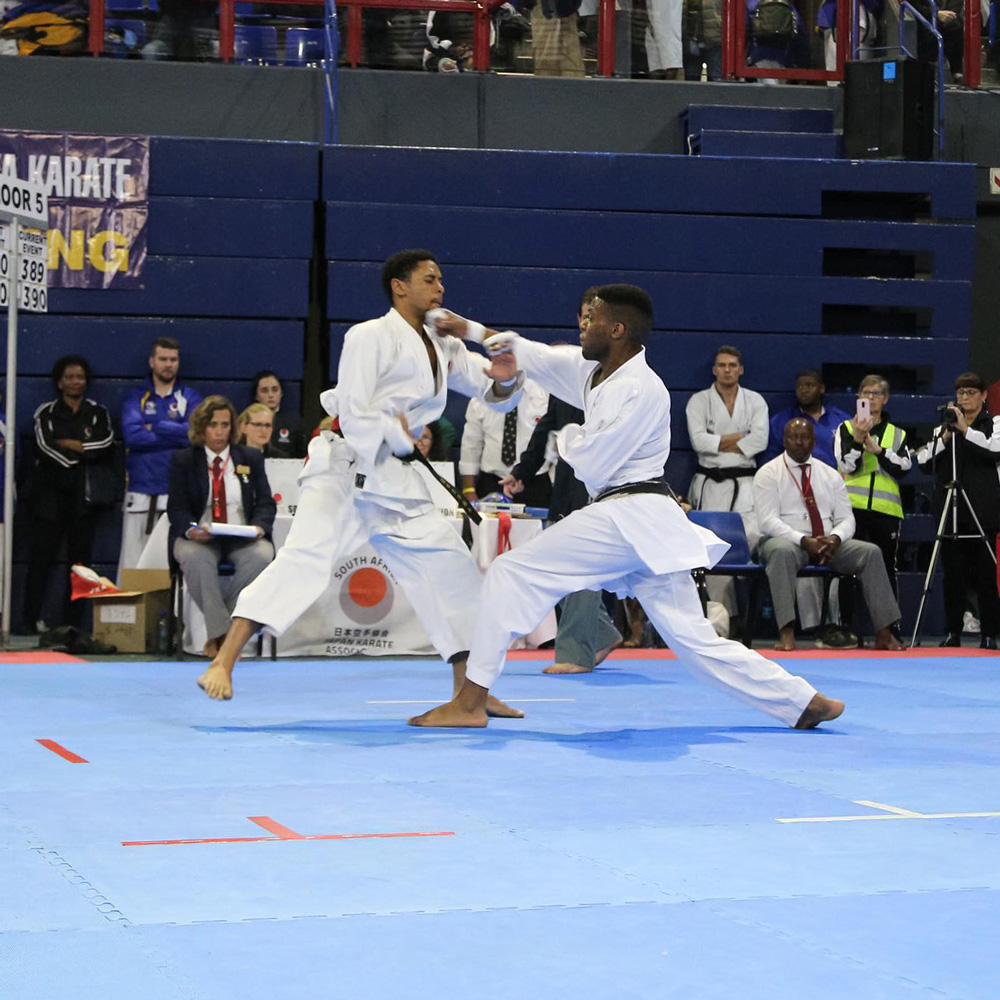
How do you manage nerves and pressure before and during high-stakes matches?
There are five aspects to this.
The first aspect is trusting in the process of preparation provided by the instructors and training with fellow karateka leading to the tournament. I gain confidence in training regularly under the instructors’ guidance and training well with fellow karateka. The trust in this process helps me deal with the nerves and pressure before and during high-stakes matches by believing I am ready and capable.
The second aspect occurs by focusing on what I can control – my performance. Everything else is just noise. This controls the nerves and pressures that I could possibly experience.
The third aspect is approaching high-stakes matches in the same fashion as all the previous matches. Let’s say a high-stakes match is considered to be the 5th round. Then, the 1st, 2nd, 3rd, and 4th matches get equal focus. It’s obvious, but if I can’t get past all of these, then the high-stakes match is irrelevant as it’s the experience or reality for other karateka. So, one step at a time. One match at a time. In this approach, the nerves and pressure that could possibly be experienced, remains the same throughout.
The fourth aspect is quickly evaluating my performance of each individual match once it is completed. Positive results (which is not always progression to the next round, as goals can vary) coupled with positive performances (satisfactory execution of my ability in kata and/or kumite) leads to confidence being taken into the following match. Positive results (if we now focus on progression to the next round) paired with less positive performances (unsatisfactory execution of my ability in kata/kumite), still results in confidence being taken to the next round! Why? Because the resultant confidence is based on the opportunity to have a complete reset in approach for the following match! So, considering the above, really, regardless of my satisfactory or unsatisfactory evaluation of performance, I feel that I am still on track to my desired goal. There’s always a chance. Always! For me, this has always helped me in managing my nerves and pressure that could possibly be experienced.
Sidenote. On the other end of the spectrum which is characterized by less positive results (elimination) coupled with positive performances (satisfactory execution of my ability in kata and/or kumite) or less positive results (elimination) paired with less positive performances (unsatisfactory execution of my ability in kata/kumite), there are far greater opportunities for learning and growth to occur. Realistically, this where you should want to be in life. Being amongst those with greater competence, be it athletically, academically, or whatever it may be, is a privilege. Take in. Learn. Refine. Work. Grow. Take in. Learn. Refine. Work. Grow. Continue.
With this in mind, stretch yourself. Strive for challenging goals. If someone has achieved a goal before you, why can’t you do the same? If no one has achieved a specific goal, why can’t you be the first? Goals should test you! If they don’t, you should probably reassess your goals.
The fifth aspect, and the most important, is the support I receive, which I can never explain how much I cherish. Be it in training and/or check-ins from instructors, fellow karateka, family, or friends. Be it support shown physically in the stands or virtually through livestreams, messages, and calls. Whatever form it takes, all of it plays its part. There are so many more examples to add to this. The support I have received is unmatched! When people provide this consistently and unconditionally, you realize that there are MUCH more significant things in life than results. Thus, the nerves and pressure are SO much easier to deal with. I could never have accomplished anything without my incredible support system. I always thank them, as they know. But once again, thank you.
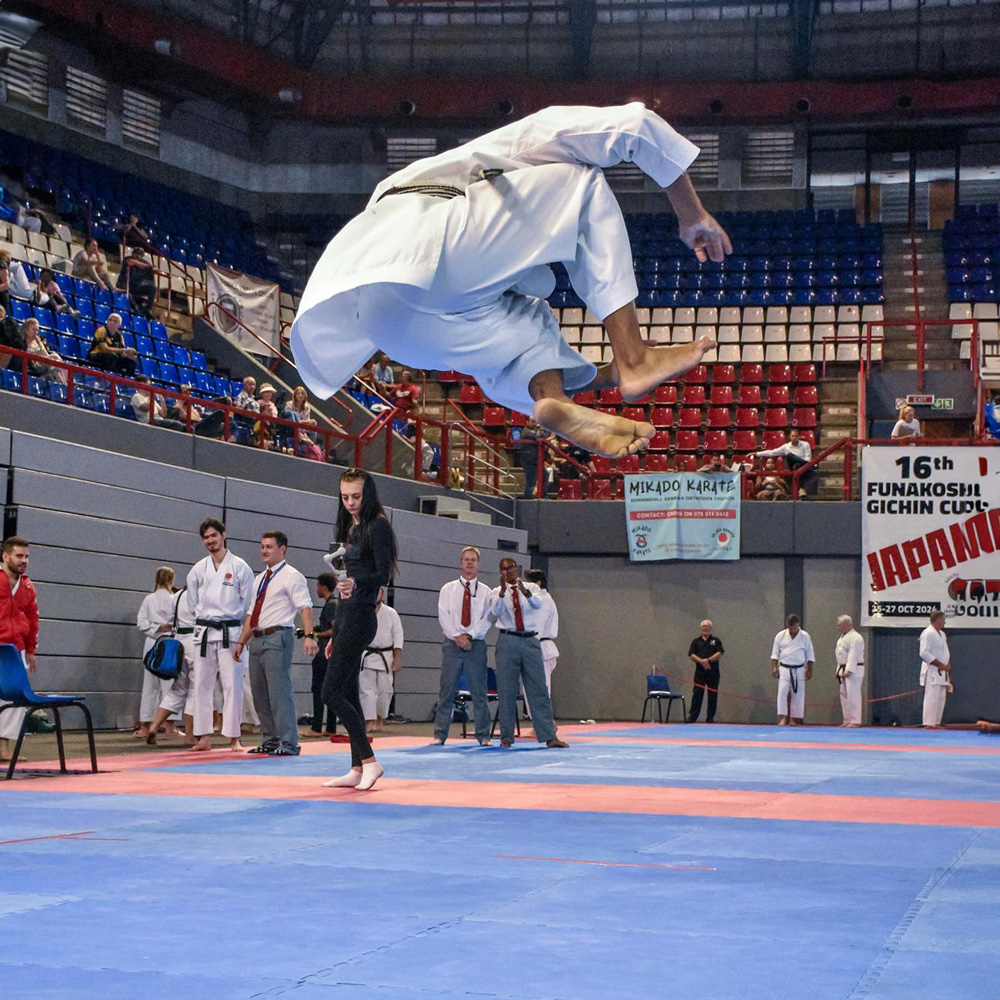
How do you analyse your performance after a competition, win or lose, to continue improving?
We can’t pretend that the evaluation of competition isn’t largely objective and spoken through results. Results hold the most significant weight. However, in this realm of objectivity, there is still a lot of room for subjectivity. Results can be influenced by many factors. If we consider less favourable results:
What were the circumstances on the day? Did someone else perform better? Great, then they deserve the result! Let’s come back stronger next time. Was I feeling sharp and like myself? Yes, well, too bad; try again next time. Were there other pressures, such as work or studies, that limited my preparation? Oh well, such is life; we all have multiple things to balance. Maybe I should relook at how I can manage my schedule better to be more prepared next time.
If we consider favourable results:
What worked well leading to this result? At the very least, I should try to repeat similar actions next time, but realistically, I should look for how I can improve and do more, as this result is not guaranteed next time. Was I feeling good on the day? Perhaps specific routines worked quite well, and I need to maintain this to the best of my ability. Was I just lucky? Well, that was nice! More of that, please.
Whatever it may be. Of course, results can be influenced by many other factors such as health, responsibilities, and the environment. With this in mind, perhaps expectations do need to be altered time and again where one is required to be realistic. Sometimes, the occasion of the event also requires one to be authentic and realistic. This does not mean there is not a chance. There is always a chance! But being true to oneself, it’s a tough one to admit, but it does deserve its own level of appreciation. This is how I analyse my performances.
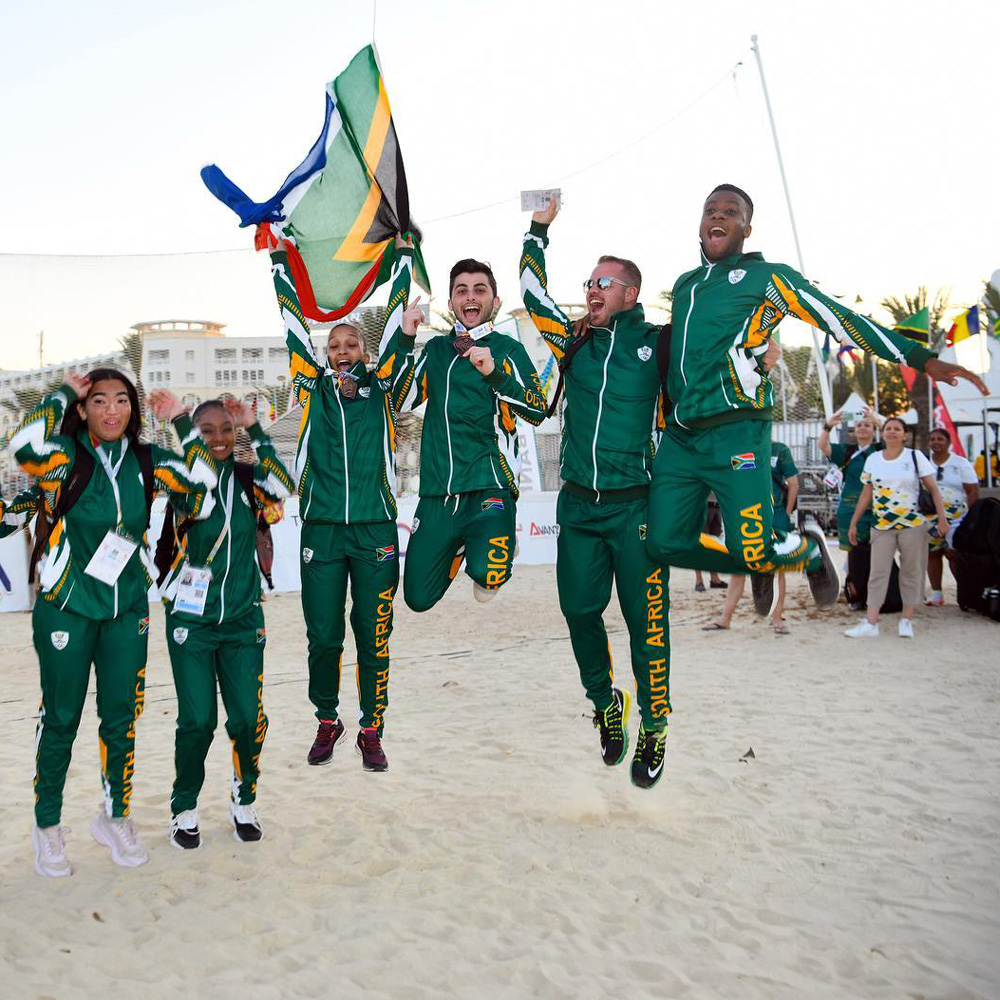
How can karate practitioners and enthusiasts contribute to preserving and evolving the essence of the martial art for generations to come?
Do not be complacent. Be open-minded. Study. Question. Engage. Practice. Repeat. Study. Question. Engage. Practice. Repeat. There is great debate as to who is the originator of the quote: “The more you know, the more you know, you don’t know.” Many say Aristotle. Some say other philosophers. Regardless, this is it! This is what will certainly preserve and evolve the essence of martial arts for generations to come. Our responsibility is to embed the same ideology or mindset in younger generations with the aim of them doing the same for following generations. Imagine what the result of this could be. Imagine applying this to all aspects of life beyond that of martial arts. Feels a bit like a responsibility, doesn’t it? Perhaps it’s our duty? An interesting one.
